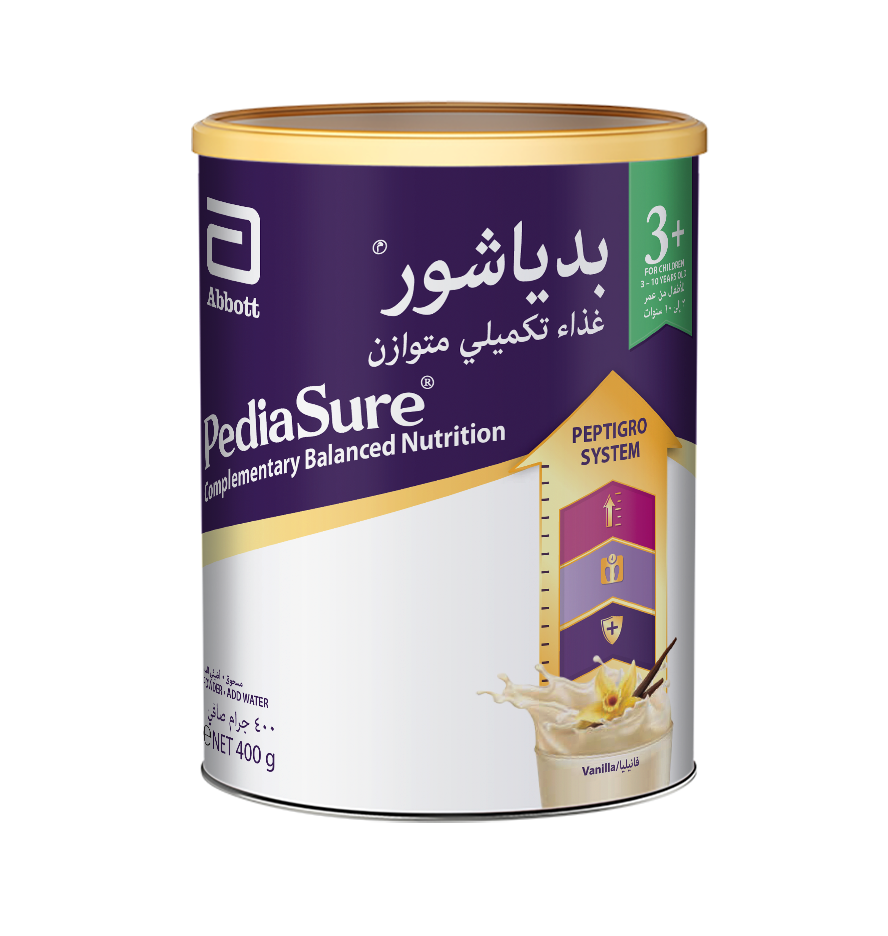PediaSure® 3+
- Main Image
-

- Subtitle
- Child nutritional supplement – From 3 to 10 Years old
- Title
- PediaSure® 3+ Vanilla
- Detail Page Path
Identifies critical indicators that feeding issues may need intervention from health professionals to prevent long-term impacts.
Provides guidance on the types of healthcare professionals to consult for feeding problems and expected outcomes.
Explains the benefits of timely professional intervention, including improved nutritional status and developmental outcomes.
Remember that old saying, prevention is always the best cure? Well, even when it comes to your kid’s nutritional limitations, there are steps you as a mother can take before matters reach a point where a physician must intervene.
Start with ensuring a balanced diet to avoid limited nutrition, as it is the first factor that could lead to nutrition depletion.
If your kids are showing signs of weight and height faltering, it’s probably best to consult a physician and take their expert guidance into consideration. Because while for adults, going to a doctor when you feel sick is the best way, for kids, having them involved even as a precautionary measure can help prevent complications that can be caused due to being under-nourished.
Most parents believe that if a child’s weight is appropriate for his or her age, then they must be healthy. Chances are, you’ve heard your friends say that too. Unfortunately, this is a perception that has proven to have no scientific basis. Because the reality is that despite putting on weight, your child could be facing nutrition deficiency.
Picky eaters often tend to show normal physical development when measured on a standardised growth chart. But don’t fall for that. Because weight gain doesn’t absolve them from being at risk of developing nutritional deficiencies.
You must have seen your kids saying that they are full after just a few bites. That’s because children often tend to eat as much as required to satisfy their immediate hunger. As long as it's something they like, they will eat to satiate their cravings. That's why it's up to you to ensure that they are eating right, and not just eating enough. The easiest way to prevent the risk of under-nourishment is to always give equal importance to both.
Talking to your preferred pediatrician or your family physician is usually the best way to go for more effective treatment options. Feeding difficulties might seem like a behavioural problem, which your kids would grow out of with time, but they are just as much a matter of concern as any other health ailment.
If you’re worried about physicians prescribing medication, put your mind at ease because they could even recommend behavioural intervention. This could include effective means of making your kids open to eating more types of food that are ideal for their overall development, despite being commonly considered as unappealing.
They could also offer mealtime suggestions, such as making your kids feel involved in meal selections and preparation to increase their willingness to eat right.
As an added measure, they may also recommend oral supplements to help meet your child’s immediate nourishment needs identified through various assessments.
A common recommendation is introducing PediaSure® 3+ to a child’s diet. A glassful of PediaSure® 3+ as part of most meals can effectively help bridge the gap between being the right weight and being adequately nourished.
How can you tell if your pediatric healthcare expert or child nutrition specialist is on the right track? Well, if they’re following these steps, you can be assured that the results will be optimal. We call it the AIIM process.
ANI-QAT-PN-2024-4347
Stay Connected